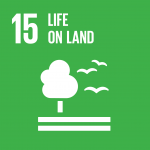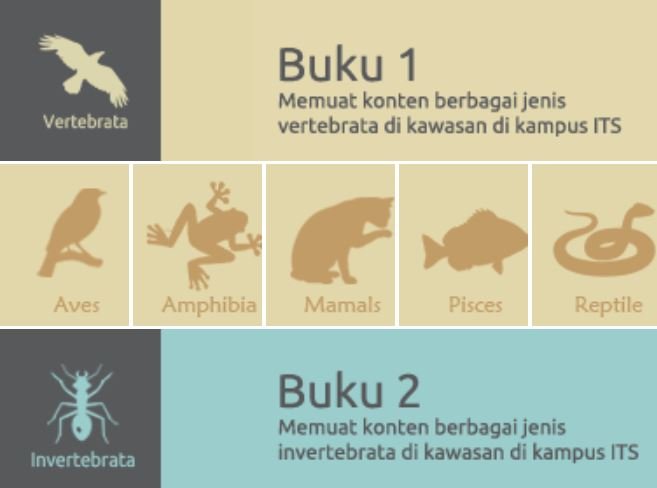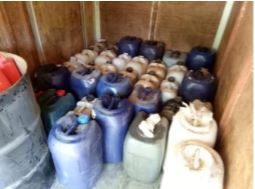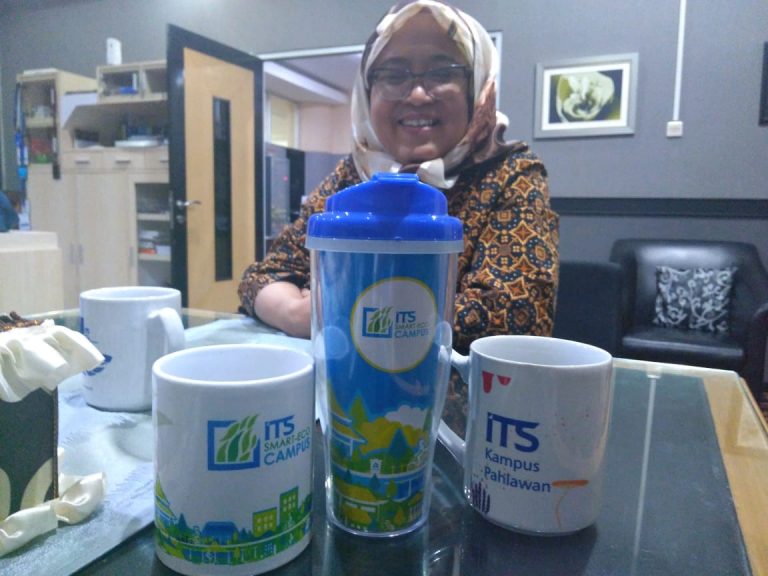“This is the second of two SDGs that look at the broader ecosystem – the other being SDG 14: Life Below Water. Life on land is a precious resource – we need to ensure that it is passed on to future generations, at a time when loss of biodiversity is an increasing concern. Different universities will have responsibility for very different landscapes and the life within, but all have a responsibility as stewards of their environment.”
(THE Impact Rankings)
SDG 15: LIFE ON LAND
Supporting land ecosystems through education
ITS Contributed to the Management of Nuraksa Community Forest Park (Tahura) Through Student Study Service Program (KKN)
The responsibility of universities to serve the community as stated in Tri Dharma, have inspired ITS to consistently act for community welfare. ITS conducted Student Study Service (KKN) in West Lombok, focused on the management of Nuraksa Community Forest Park (Tahura). Nuraksa Community Forest Park has several locations that can be used as tourist attractions, including Segenter Waterfall, Pengkoak Cave, Blue Lake, camping area, and much diversity of flora and fauna.
ITS Millennial Farmer Community Participates in Urban Organic Farming Training
ITS Millennial Farmer Community participated in the “Organic Farming Training in Urban Areas” event at ITS Dept. Business Management Plaza in commemoration of World Food Day. The organic farming training event in urban areas was held after seeing the opportunities for organic farming in urban areas, which have now become a trend among millennials.
ITS Tandur Race 2020
ITS’ Eco Urban Farming conducted ITS Tandur Race 2020 to encourage the community to have a hands-on experience in organic planting. The race was conducted to promote #GrowYourOwnFood act by organic planting. The race was joined by many ITS lecturers, alumni, students and also public.
ITS’ Organic Vegetables Fulfill Community Nutrition During Covid-19 Pandemic
ITS makes a leap in the endeavor of managing independent food security, moreover in the midst of social distancing at the time of the Covid-19 pandemic. Since 2013, ITS has started utilizing empty lands at ITS to be used as organic farming land in the The Eco Urban Farming Program. In 2020, Organic vegetable plantation (SayOr) of ITS in Eco Urban Farming program in Smart Eco-Development Campus continues to produce products to meet the nutritional needs of community.
Urban Farming at ITS
The Eco Urban Farming program is carried out by utilizing empty land in ITS as an organic farming land. The green house is also built on the ITS Eco Urban Farming land with knocked down system so that it can be moved to another place (portable). In 2020, ITS Eco Urban Farming already has 8 greenhouses, 3 open lands, 1 aquaponic greenhouse and Smart Eco Campus Gallery.
ITS Dept. of Business Management and GDM GO Held an Organic Farming Training
GDM Organic in collaboration with the ITS Dept. of Business Management to held an organic farming training event in urban areas. Through this event, GDM Organic invites millennial farmers to participate in efforts to preserve Indonesia’s nature by moving from the habit of using hazardous chemical products to environmentally friendly organic products.
Celebrating the Environment Day, ITS Planted Hundreds of Flowery Trees
Coincided with the national Environment Day on 10 January, ITS planted hundreds of trees in ITS Campus. The inaugural activity wrapped in the event entitled Green Charity for Flowery ITS. The event was also conducted to celebrate World Movement Million Trees.
Getting to Know KSBL Pecuk, ITS’ Community Focused on Environmental Conservation
Pecuk is a Wild Bird Study Group at ITS Dept. of Biology which focused on conducting observations and research on wild birds in nature. All activities carried out by Pecuk have a vision of creating a community that oversee the preservation of birds and their habitats in nature.
ITS Contributed to the Management of Nuraksa Community Forest Park (Tahura) Through Student Study Service Program (KKN)
The responsibility of universities to serve the community as stated in Tri Dharma, have inspired ITS to consistently act for community welfare. ITS conducted Student Study Service (KKN) in West Lombok, focused on the management of Nuraksa Community Forest Park (Tahura). Nuraksa Community Forest Park has several locations that can be used as tourist attractions, including Segenter Waterfall, Pengkoak Cave, Blue Lake, camping area, and much diversity of flora and fauna.
ITS Contributed to the Management of Nuraksa Community Forest Park (Tahura) Through Student Study Service Program (KKN)
The responsibility of universities to serve the community as stated in Tri Dharma, have inspired ITS to consistently act for community welfare. ITS conducted Student Study Service (KKN) in West Lombok, focused on the management of Nuraksa Community Forest Park (Tahura). Nuraksa Community Forest Park has several locations that can be used as tourist attractions, including Segenter Waterfall, Pengkoak Cave, Blue Lake, camping area, and much diversity of flora and fauna.
Revealing the Sampling Method and Facts on Bats through Sampling Method and Chiroptera Ecology Guest Lecture
Bats, animals that belong to the flying mammal class, are now being hotly discussed about their impact on the current on-going pandemic. In order to educate students about bats, ITS Department of Biology held a guest lecture entitled Sampling Method and Chiroptera Ecology. Not only discussing different sampling methods from other animals, this guest lecture also discussed interesting facts about bats.
Getting to Know KSBL Pecuk, ITS’ Community Focused on Environmental Conservation
Environmental conservation is becoming a hot topic of discussion for all circles, as well as for groups and communities of nature lovers. ITS as a committed Sustainable and Eco Campus, supports various activities related to nature protection. One of them is the Pecuk Wild Bird Study Group (KSBL Pecuk), a community engaged in environmental conservation, especially wild birds.
In Full Support for Regional Development, ITS Signed MoU with Batu City Government
ITS provides and endorses various educational activities and programmes that are tied to the sustainable management. Committed to this, ITS expanded its collaboration with local governments in Indonesia. This time, ITS and Batu City Government officially signed a Memorandum of Understanding (MoU), in relation to their collaboration in regional development project plans. Moreover, ITS and Batu City will develop regional development projects that include a master plan for drinking water drainage, solid waste management, smart city, and other development projects.
Smart Agriculture Innovation by ITS Lecturer
In an agrarian country like Indonesia, more efforts are needed to support sustainability in the agricultural sector. Therefore, a lecturer from ITS designed a website for smart agriculture through her research entitled Smart Agriculture Development to Improve the Supply Chain Value of Agricultural Commodities in Supporting Smart City.
Sustainable Village Development by ITS SDGs Center
ITS through its SDGs Center on August 2020, became speakers on one of the Youtube channel entitled “TV Desa” which carried the theme of sustainable village development education to the community.
Supporting land ecosystems through action
Policy to support land ecosystem & monitor IUCN and conservation species
ITS has a policy to ensure the conservation, restoration and sustainable use of terrestrial ecosystems associated with the university, in particular forests, mountains and drylands. ITS has planned and designed several areas in the campus as green open spaces. Currently, the ratio of green open space in ITS Campus is 87%.
Smart Eco Campus
ITS Smart Eco Campus is an initiative in creating sustainable development in the campus environment by utilizing technology and science developed on campus. ITS believes that the development of science and technology is able to run in harmony with nature. For this reason, ITS took the initiative to become a pioneer in the development of smart eco campuses and utilize every element of the campus to create environmentally friendly development.
Campus Forest
ITS campus has total area of 706329 m2 or 42.2% of the total campus area covered by plant vegetation. Where the plant vegetation at ITS is in the form of open gardens that can be enjoyed by the public, such as Alumni Park, Triangle Park, roundabout parks, departmental parks and garden land managed by several departments, and corridors spread across all campus areas.
Policy to support land ecosystem & monitor IUCN and conservation species
ITS has a policy to ensure the conservation, restoration and sustainable use of terrestrial ecosystems associated with the university, in particular forests, mountains and drylands. ITS has planned and designed several areas in the campus as green open spaces. Currently, the ratio of green open space in ITS Campus is 87%.
Getting to Know KSBL Pecuk, ITS’ Community Focused on Environmental Conservation
Environmental conservation is becoming a hot topic of discussion for all circles, as well as for groups and communities of nature lovers. ITS as a committed Sustainable and Eco Campus, supports various activities related to nature protection. One of them is the Pecuk Wild Bird Study Group (KSBL Pecuk), a community engaged in environmental conservation, especially wild birds.
Smart Eco Campus
ITS Smart Eco Campus is an initiative in creating sustainable development in the campus environment by utilizing technology and science developed on campus. ITS believes that the development of science and technology is able to run in harmony with nature. For this reason, ITS took the initiative to become a pioneer in the development of smart eco campuses and utilize every element of the campus to create environmentally friendly development.
Wonderful Morning at ITS
ITS realizes that a rich and safe biodiversity signal a healthy environment. Aiming to assure knowledge and awareness, the institution invites the community to learn about the biodiversity in its ITS campus environment by launching video weekly.
Getting to Know KSBL Pecuk, ITS’ Community Focused on Environmental Conservation
Environmental conservation is becoming a hot topic of discussion for all circles, as well as for groups and communities of nature lovers. ITS as a committed Sustainable and Eco Campus, supports various activities related to nature protection. One of them is the Pecuk Wild Bird Study Group (KSBL Pecuk), a community engaged in environmental conservation, especially wild birds.
Bolo Eco Campus, Environmentalist Community from ITS
Bolo Eco Campus is a community of four environmentalist organizations and five student organizations at ITS. The four organizations are Ministry of Social Affairs BEM ITS, the Pecuk community, Environmental Lovers Cycles and the Environmental Engineering Lovers and Observers Group (KPPL) from Department of Environmental Engineering. This community functions as a mediator between students and the bureaucracy in carrying out Eco Campus programs.
ITS Contributed to the Management of Nuraksa Community Forest Park (Tahura) Through Student Study Service Program (KKN)
The responsibility of universities to serve the community as stated in Tri Dharma, have inspired ITS to consistently act for community welfare. ITS conducted Student Study Service (KKN) in West Lombok, focused on the management of Nuraksa Community Forest Park (Tahura). Nuraksa Community Forest Park has several locations that can be used as tourist attractions, including Segenter Waterfall, Pengkoak Cave, Blue Lake, camping area, and much diversity of flora and fauna.
Urban Farming at ITS
The Eco Urban Farming program is carried out by utilizing empty land in ITS as an organic farming land. The green house is also built on the ITS Eco Urban Farming land with knocked down system so that it can be moved to another place (portable). In 2020, ITS Eco Urban Farming already has 8 greenhouses, 3 open lands, 1 aquaponic greenhouse and Smart Eco Campus Gallery.
ITS Millennial Farmer Community Participates in Urban Organic Farming Training
ITS Millennial Farmer Community participated in the “Organic Farming Training in Urban Areas” event at ITS Dept. Business Management Plaza in commemoration of World Food Day. The organic farming training event in urban areas was held after seeing the opportunities for organic farming in urban areas, which have now become a trend among millennials.
Land-sensitive waste disposal
Regulation of the Local Government of Surabaya No. 12 Year 2016 about Water Quality Management and Waste Water Control
ITS implemented Regulation of the Local Government of Surabaya No. 12 Year 2016 about Water Quality Management and Waste Water Control which inline with Circular Letter of ITS Rector No. T-95007-IT2-TU.00.08-2019. Through the implementation of this policy, ITS managed a wastewater discharge system using wastewater treatment plant (IPAL) and down-cycling method.
Circular Letter of ITS Rector No. T-95007-IT2-TU.00.08-2019 concerning ITS as a Sustainable and Environmental Friendly Campus
Through Circular Letter of ITS Rector No. T-95007-IT2-TU.00.08-2019 concerning ITS as a Sustainable and Environmental Friendly Campus, ITS concerned on water discharges produced by facilities on campus area. Thus, ITS managed and monitored water quality standards and guidelines for water discharge to uphold water quality in order to protect ecosystems, wildlife, and human health and welfare.
Wastewater discharge
As an institution that delights in the concept of green campus, ITS is mindful about the water discharges produced by its facility. Thus, ITS is continously on a march to discover and implement new and innovative ways to reinforce wastewater utilization. ITS managed a wastewater discharge system using wastewater treatment plant (IPAL) and down-cycling method.
Circular Letter of ITS Rector No. B/50268/IT2/TU.00.02/2019 concerning the Use of Disposable Plastic Water Bottles and Plastic Bags at ITS
ITS has a policy in reducing plastic waste on campus adhering to the Instruction of Minister of Research, Technology, and Higher Education of the Republic of Indonesia No. 1 Year 2019, by creating Rector’s Regulation No. 50268 of 2019. On the policy, specifically item A no. 6, where ITS implemented a policy that encourages waste management at campus by reducing the household-like waste at campus through reduce, reuse, and recycle and 7, where ITS promotes savings over the use of paper, plastic, styrofoam and similar materials that have the potential to produce waste). The university also has specific policy concerning the use of disposable plastic bottled water.
Instruction of Minister of Research, Technology, and Higher Education of the Republic of Indonesia No. 1 Year 2019 about Prohibition the Use of Disposable Plastic Bottled Water and Plastic Bags
ITS has a policy in reducing plastic waste on campus by adhering to the Instruction of Minister of Research, Technology, and Higher Education of the Republic of Indonesia No. 1 Year 2019 about Prohibition the Use of Disposable Plastic Bottled Water and Plastic Bags. ITS responded positively to the national policy by creating Rector’s Regulation No. 50268 of 2019 that encouraged the heavy use of plastic-based packages in ever work units’ activities, encouraged food provider in the campus to use organic wraps and provided drinking water dispenser in each offices & classes, and distributed travel mug for the students.
Regulation of the Local Government of Surabaya No. 12 Year 2016 about Water Quality Management and Waste Water Control
ITS implemented Regulation of the Local Government of Surabaya No. 12 Year 2016 about Water Quality Management and Waste Water Control which inline with Circular Letter of ITS Rector No. T-95007-IT2-TU.00.08-2019. Through the implementation of this policy, ITS managed a wastewater discharge system using wastewater treatment plant (IPAL) and down-cycling method.
Circular Letter of ITS Rector No. T/95007/IT2/TU.00.08/2019 concerning ITS as a Sustainable and Environmentally Friendly Campus
To continuously ensure the realization of its goal as a smart eco campus, ITS endorses sustainable waste management and disposal practices. In the Circular Letter of ITS Rector No. T-95007-IT2-TU.00.08-2019, the institution pledges to limit the use of potential hazardous waste material such as styrofoam and plastic, reducing the carbon and gas emissions by limiting personal vehicles, and supervising the disposal of hazardous material waste to the right and ethical treatment. ITS also works together with the local goverment agency by adhering to Regional Regulation of Surabaya City No. 12 of 2016 about Water Quality Management and Waste Water Control.
Hazardous Waste Treatment
In the Circular Letter of ITS Rector No. T-95007-IT2-TU.00.08-2019, the institution pledges to limit the use of potential hazardous waste material such as styrofoam and plastic, reducing the carbon and gas emissions by limiting personal vehicles, and supervising the disposal of hazardous material waste to the right and ethical treatment. Thus, at ITS, hazardous waste is treated separately and collected to a certified third-party to be processed.




